Meet Hollywood Power Couple David and Jessica Oyelowo

- Oops!Something went wrong.Please try again later.
- Oops!Something went wrong.Please try again later.
- Oops!Something went wrong.Please try again later.
- Oops!Something went wrong.Please try again later.
Above: David and Jessica Oyelowo in their Los Angeles home. On David: Brunello Cucinelli cashmere rib-knit sweater, $3,500, linen pleated trousers, $1,100, and suede unlined penny loafers, $1,150; Cartier Santos-Dumont watch in 18-karat rose gold, $15,000.
On Jessica: Dior cotton-poplin blouse, $1,900, cotton-gabardine skirt, $5,600, and heeled grosgrain boots, $2,290; Cartier Trinity earrings in 18-karat rose, white, and yellow gold and white diamonds, $2,390, and Juste un Clou ring in 18-karat yellow gold and white diamonds, $10,400.
More from Robb Report
'It's Important to Be Very Sober': Cartier's Creative Director on What Shapes the House's Designs
'Smart Casual' Is Menswear's Most Dominant Dress Code. Here's How to Nail It.
Restaurateur Michael Chow on Vintage Cartiers, Big Tips, and Why He Only Drives Rolls-Royces
The day I arrive outside the Los Angeles compound of husband-and-wife producing team David and Jessica Oyelowo, the Santa Anas—known as the devil winds for their heat and fury—have been lashing the city, felling trees and power lines and leaving plenty of disaster grist for the local-news mill in their wake. But once I am inside the gate, where first a boisterous Goldendoodle named Chappelle and then the view of a verdant hillside dotted with olive trees greet me, the meteorological chaos beyond the walls seems to disappear.
Two Mediterranean-style homes sit on this generous plot in the San Fernando Valley, and David is hunkered down in the one closest to the street, which houses the couple’s production company, Yoruba Saxon, its name a nod to their respective cultural heritages. He’s typing on a laptop at a table in the living area, working under deadline, he tells me, after he gets up to shake my hand. He’s warm but telegraphs a certain gravitas. Jessica enters the light-filled room singing “Hellooo,” dressed casually in a sweatshirt and leggings, her arm in a sling. We’re here to discuss their latest project, the documentary Becoming King, which chronicles the seven years David spent preparing to play Martin Luther King Jr. in Selma and marks Jessica’s directorial debut. Becoming King’s release has been timed to coincide with the 10th anniversary of Ava DuVernay’s civil-rights drama, a landmark film widely considered to be the one and only authoritative biopic of King.
We’re never apart for more than two weeks, which means that there have been times our kids are suddenly on set in Botswana or Uganda or Texas… and that becomes an educational experience, rather than an educational inconvenience.
When asked why it took the better part of a decade to get a film about such a historic moment in the life of both the human-rights icon and the nation green-lit, David doesn’t mince words. “On a very pragmatic level, why Selma took so long is that our industry and our culture are racist,” he answers. Becoming King delves into the more granular reasons for the slow pace, from David initially being rejected for the role to the revolving door of directors to him not being, in his own estimation, ready. “If this film had happened when it first came into my life, I’m almost certain I would have messed it up,” he acknowledges. The intensity that audiences have come to expect from the Emmy- and Golden Globe–nominated actor, famous for playing justice seekers, peacekeepers, and other men on a mission, is palpable in the flesh. (Jessica later tells me that David watches UFC fights to unwind.)
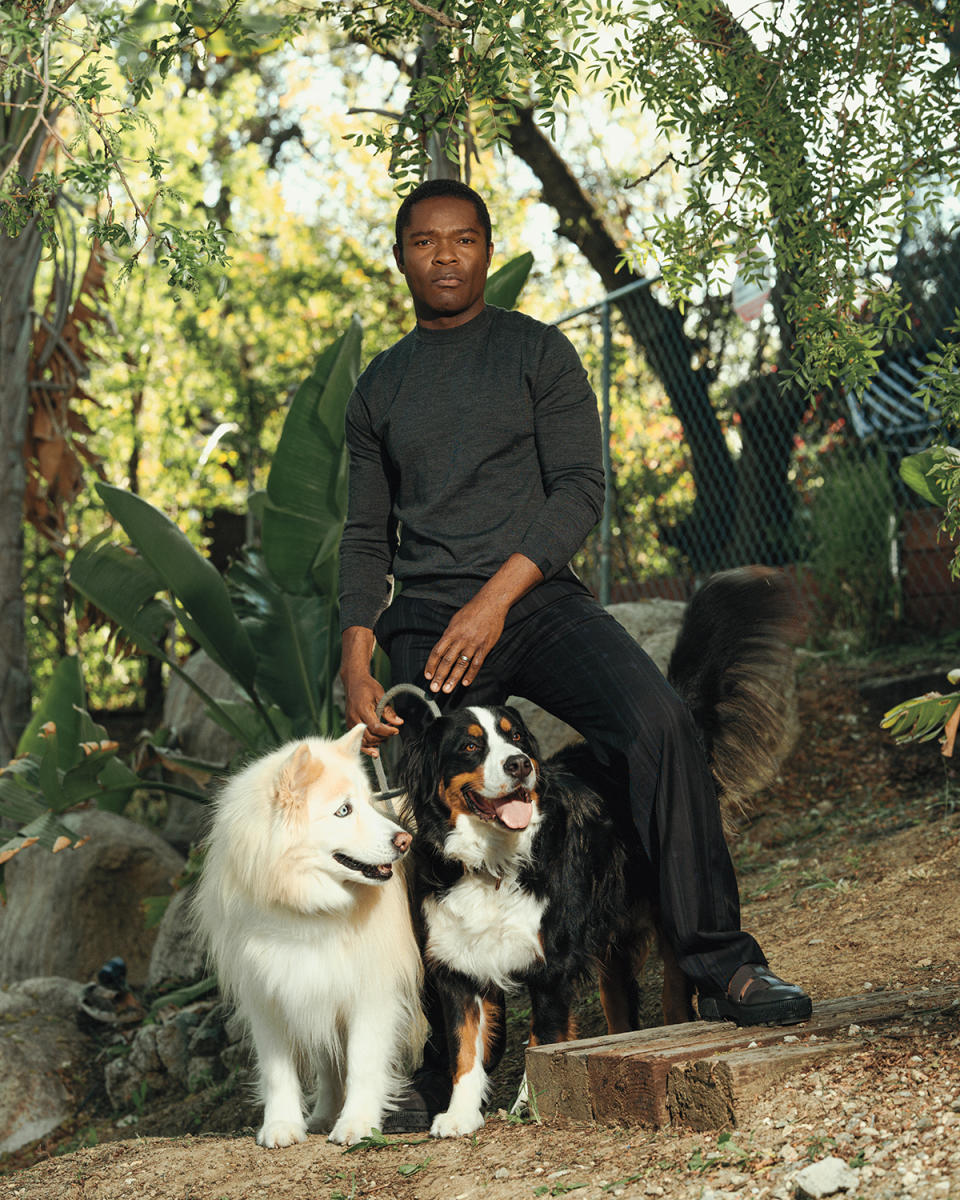
Having lived in the U.S. for the past 17 years and portrayed several African American characters fighting for equality—whether it’s the young man who joins the Black Panthers in The Butler or the Union corporal advocating for the Black vote in Spielberg’s Lincoln—the 48-year-old Nigerian British American has gained firsthand knowledge of racism in America. And yet discrimination in this country troubles David less than it does back home. “In the U.K., it is insidious, hidden, and cloaked in nicety,” he says. “Whereas here, someone’s going to call you the n-word to your face, especially in certain states. And I would rather know where I stand, in order to know what to avoid, and how I move through that space.”
When half a partnership is as direct and dynamic as David, one might expect the other half to be his yin, a complementary spirit with inverse qualities. But despite David’s and Jessica’s obvious differences—he, born to Nigerian immigrant parents, descended from royalty; she, from a working-class British family whose grandparents were missionaries—they’re quick to point out their similarities. “We both come from Christian households,” David says. “And the tenets of Christianity are sacrificial love, doing for the other at the expense of yourself.”
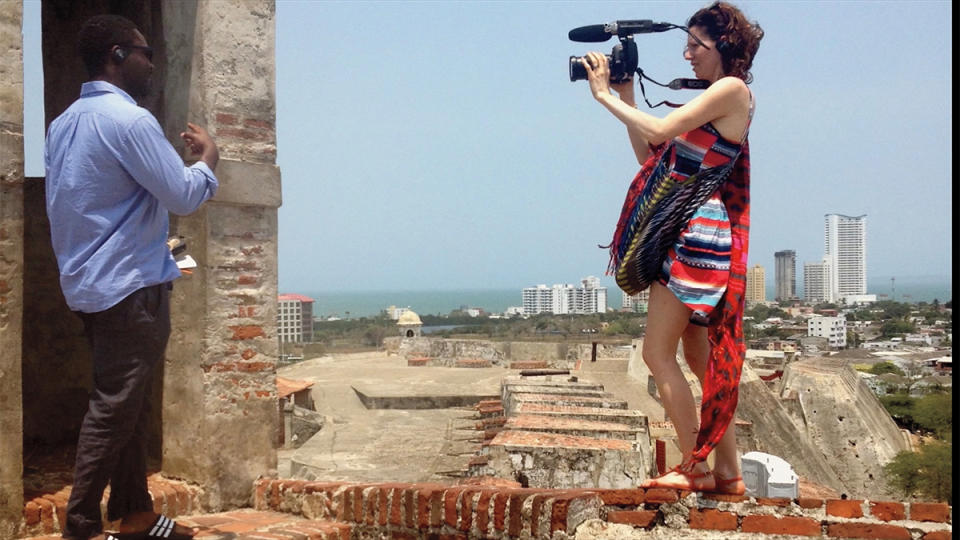
“There’s quite a lot of crossover, despite my family being very British. We’re answerable to something bigger than ourselves,” Jessica adds, describing the values she was raised with. “I’m one of four children, and we all went to private school. But there were times when my mum didn’t have dinner with us and would say she wasn’t hungry. She would have, like, half a can of baked beans at the end of the day when we’d gone to bed, because they didn’t have enough money when we were all in school to afford full meals.”
The couple’s different races, in her view, may be “a little more obvious visually,” but no harder to negotiate than any other marriage’s merging of two family dynamics. “We fell in love with each other’s souls,” Jessica says. “I’m very aware that David is a Black man, and he’s very aware that I’m a white woman, and that our children have more to navigate because society can make them feel like they have a foot in both worlds. They’re English, Nigerian, and American. So it’s more of a cultural clash and finding harmony within three different cultures than a racial element.”
As a result of their shared formative experiences, David and Jessica are both driven. “We’re really rigorous with ourselves, our work, our parenting, our marriage. With every aspect of our lives,” Jessica says. “We know we’re unusual.”
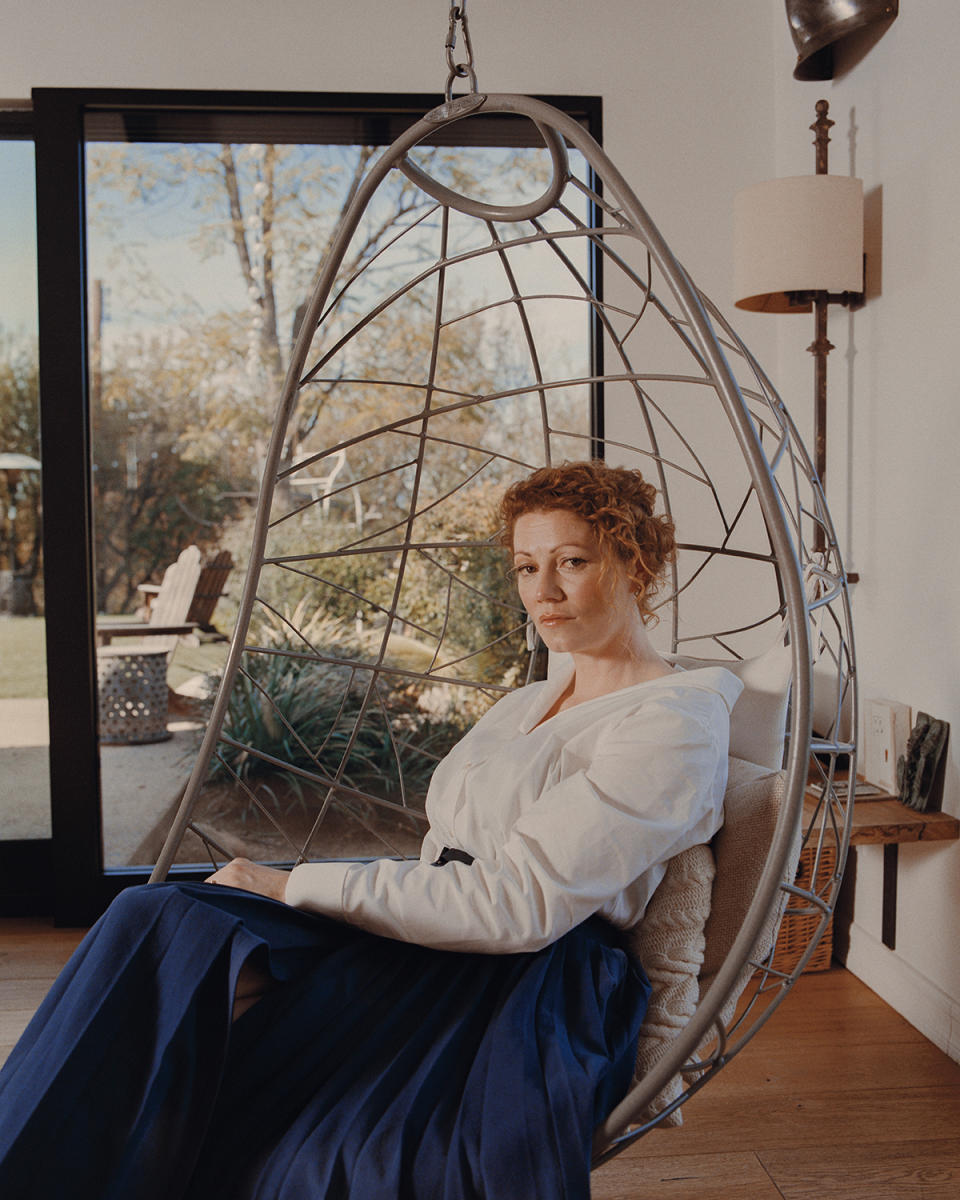
Consider the arm she has in a sling. Though Jessica broke her wrist the day before the Oscars, she insisted on attending the ceremony to support The After, a film nominated for Best Live Action Short in which David stars as a grieving father. Nor did it prevent her from going to the after-parties, sling discreetly tucked under a stunning gold brocade coat, where the Oyelowos caught up with the night’s biggest winners, Christopher Nolan and Emma Thomas.
“I met Emma on a beach,” Jessica recalls of their chance encounter over a decade ago. “I went up to her and said, ‘Excuse me, can you tell me the secret to being this calm around four young children?’ Not knowing she was Emma Thomas, married to Chris Nolan, and they were the most extraordinary married producing partners in the world.” Jessica, who has four children with David, readily admits that she and David regard Thomas and Nolan as role models.
“I’m going to take her out for dinner and pick her brain on what’s next,” she says. “Her kids, three of them have left home, and the youngest is 16. Does that change the way they do life and their films?”
Work-life balance is everything to the Oyelowos, whose children range in age from 12 to 22. David and Jessica met as teens at London’s prestigious National Youth Music Theatre, graduates of which include Jude Law and Idris Elba, and they haven’t been apart since. Hence the compound: three properties stitched together with two houses—one for work, one for family—and an empty lot where the couple plan to build a post-production facility and music studio. (In addition to being an actor-producer-director, Jessica is a singer-songwriter.) “When you’re here, you’re working,” David says. Then, gesturing in the direction of the family home 50 steps up the hillside, he adds, “When you’re up there, it’s life. But because what we’re doing is fueled by passion, it doesn’t need to be so separate.”
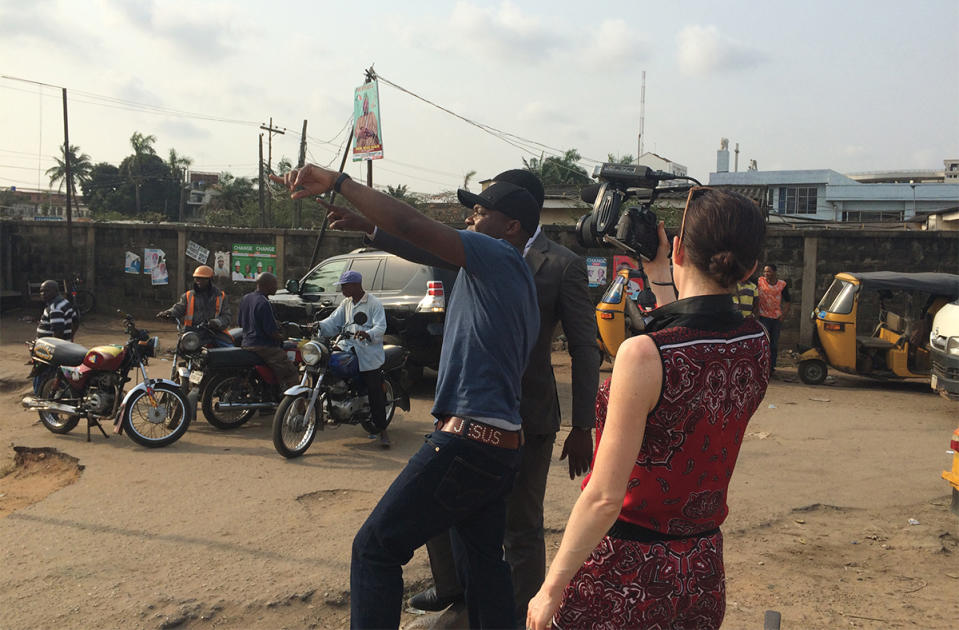
“We have dinner together whenever we can, where we talk through all the stuff of the day,” Jessica adds. “And it usually ends up coming back to relationships, because that’s all teenagers are actually interested in—”
“It mostly comes back to sex,” David interjects with a look of mild chagrin.
After Robert Downey Jr.’s Oscar win in March, his wife, the producer Susan Downey, told an interviewer that the secret to their 20-plus years together is their “two-week rule.” The Oyelowos operate by a similar mandate. “We’re never apart for more than two weeks,” David says, “which means that there have been times our kids are suddenly on set in Botswana or Uganda or Texas, or wherever we happen to be shooting, and that becomes an educational experience, rather than an educational inconvenience.”
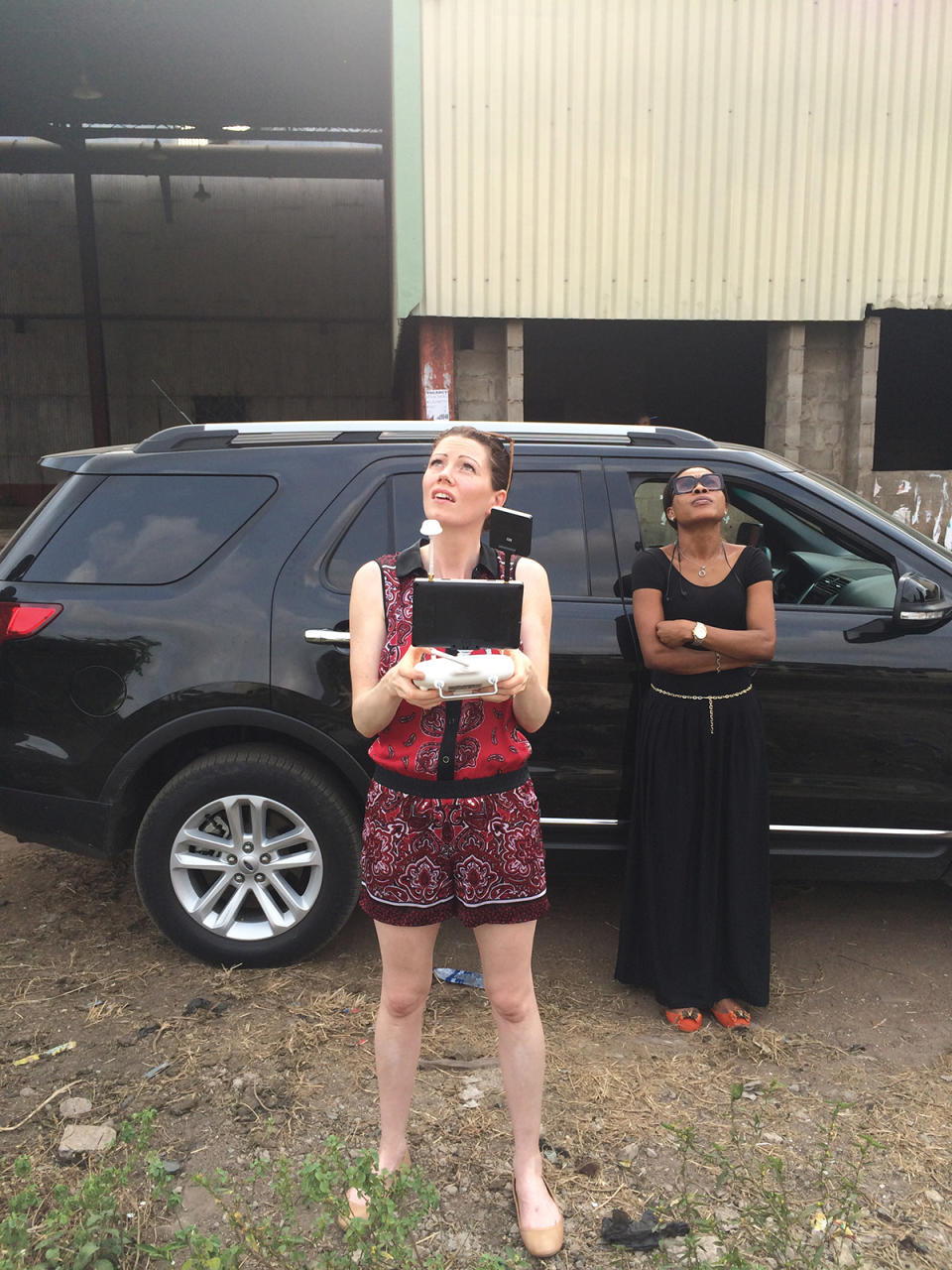
The unique blend of the professional and the personal that the Oyelowos have created through 25 years of marriage is a central motif in Becoming King. Though the documentary includes interviews with Oprah Winfrey (whom David befriended while playing her son in The Butler) as well as George Lucas, Lee Daniels, and DuVernay, it is ultimately a story about family: about David’s late parents, Victoria and Stephen, and the sacrifices they made for their children. The film takes the audience back to the one-bedroom apartment David’s family lived in while his parents scrimped to send their sons to the best schools in Lagos. When he talks about his mother and how she informed his performance as King—she prophesied when he was a boy that he would “walk amongst kings”—his voice cracks and he cries at the memory. Jessica reaches out with her good arm, fixes her green eyes on him, and holds his shoulder until he recovers.
Becoming King is also a love letter to David and Jessica’s partnership and their own children: Asher, 22, Caleb, 20, Penuel, 16, and Zoë, 12. The documentary depicts how real life marches on, indifferent to our greatest achievements, even in the land of make believe. “People often say when I play certain characters—Dr. King being one—‘Gosh, that was such an intense role, did it take you a while to shake it?’ ” David says, preempting one of my questions. “You come home and you’re dealing with diapers and dogs and reality. I probably get half an hour and then, we’re back… ”
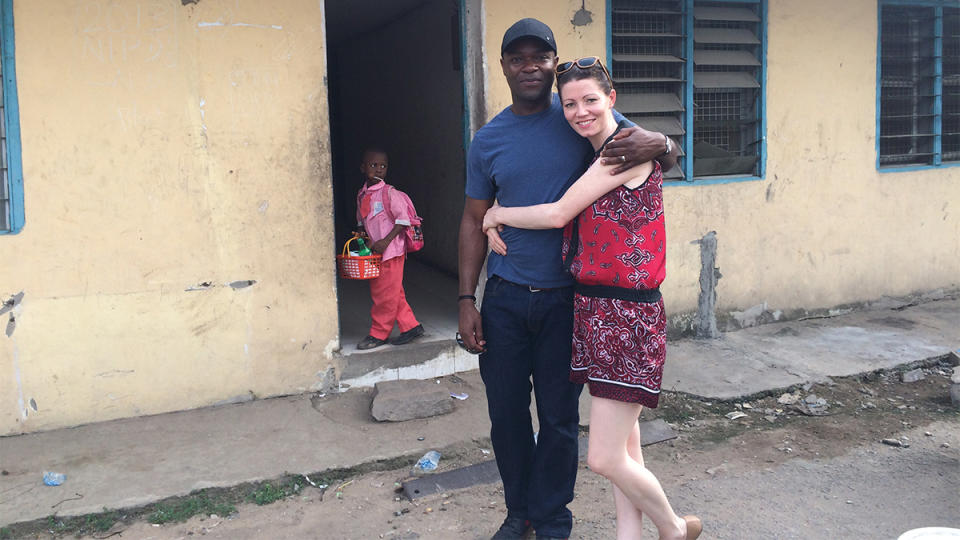
“Weren’t you nominated for an award and you couldn’t find anyone to tell, and all you could hear was a kid in the toilet going, ‘Dad, can you wipe my butt?’ ” Jessica asks, as the two of them break into laughter. Jessica moves the arm she has in a sling upright to reverse the blood flow—she’s slated for surgery the next day—and I ask if she’s in pain. “Not really,” she says breezily. “I tend to see the upside in things. Even of, ‘I’ve just broken my wrist.’ The upside is I have to learn to ask for help, which I’m really bad at.” To illustrate her point, she offers to make us both tea. David has to leave for a meeting, but not before asking if I have any more questions and giving me a hug.
We’re really rigorous with ourselves, our work, our parenting, our marriage, with every aspect of our lives. We know we’re unusual.
Being bad at asking for help is a quality that might explain why and how Jessica wears so many hats in her work and private life. In addition to her directorial debut, she and David have a first-look deal with Apple TV+, teamed with Yellowstone-rainmaker Taylor Sheridan to produce the hit Paramount+ series Lawmen: Bass Reeves, starring David, about the real-life deputy U.S. marshal (and which will become an anthology series next season), and are developing a reboot of The Rocketeer for Disney. Earlier in the year, Jessica even found time to release an album titled (M)Other, all while homeschooling their youngest child.
Happily homeschooling at that, she insists. Educating one’s own child several hours a day may seem too quotidian (and miserable, as most parents who endured the pandemic will tell you) for someone who aspires to be one half of Hollywood’s next producing power couple. Yet it’s in motherhood where Jessica often finds her muse.
“There’s a shift that happens when you become a mother,” she says. “It’s definitely been a struggle where I’m going, ‘Hang on, why am I home with the kids when I really want to just go out and conquer the world?’ I fought so hard as a kid to be like, ‘No, don’t put limitations on me!’ And then I find myself being a full-time wife and mother going, ‘Wait, this is exactly what I said I wouldn’t do. What’s happening?’
“But as I was beginning to get some hindsight,” she continues, “I could see what it was doing to benefit me. All the fighting of my youth, all the, ‘You can’t tell me what to do. I’m capable of anything you can do,’ ” referring to pushing against the glass ceiling. “I needed time out from the fight to allow myself to be fully authentic. And every little step I take towards being fully authentic has led me to be more of my creative self, to do things that are more true than they ever could have been.”
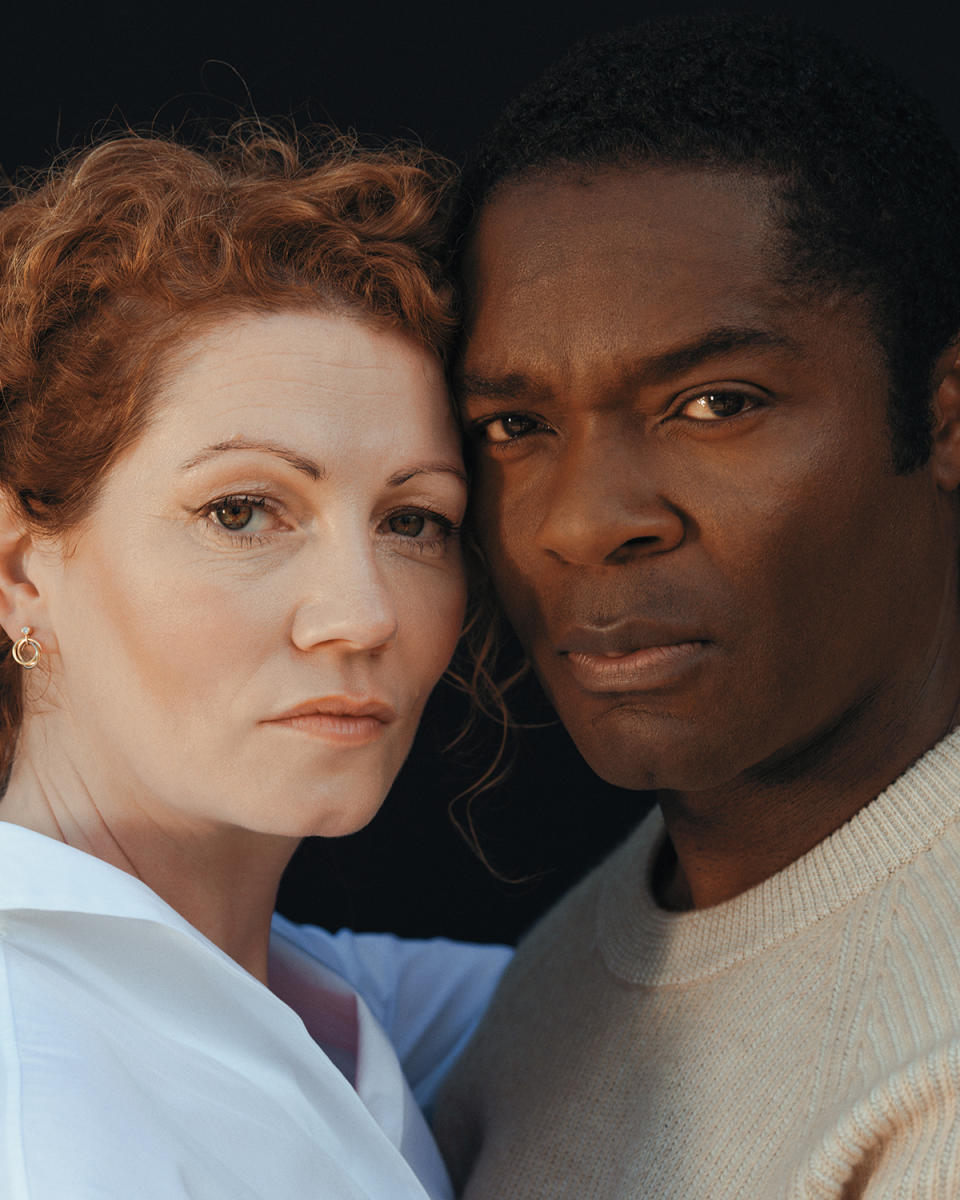
Though her role in Becoming King was behind the camera, the documentary feels a bit like a coming-out party for Jessica—a chance for her to be regarded as an artist in her own right. And like the movie her film documents, it took years to birth.
“It was long and arduous,” she says. “I went off in various different directions, wanting to tell other parts of the story, but kept coming back to this plumb line: David preparing to play Dr. King. That was it. I did what David did with Selma—and trusted that the film would be ready when it was ready. Stories, like children, have an innate nature that needs to be allowed to flourish. So the story will tell you when it wants to be let out into the world.”
When I ask what she desires for Becoming King, she replies, “My hope for this documentary is that people will watch it and go, ‘I’ve always wanted to do x. And I know I can do it—I have to do it.’ ” She’s referring to the inspiration that might strike someone watching David’s determination to tell King’s story, but she could easily be talking about the effect her own narrative could have. And as the devil winds continue to whip outside, knocking over any obstacle in their way, she tells me the questions she hopes will linger in the audience’s minds.
“What have you got inside you that needs to be released? And how can you unleash it?”
Fashion Director: Alex Badia
Stylist: Emily Diddle
David Oyelowo’s Groomer: Vonda K. Morris
Jessica Oyelowo’s Hair and Makeup: Mike Fernandez at OPUS Beauty using Dior Beauty for makeup and Oribe for hair
Photo Assistant: Nicol Biesek
Sign up for Robb Report's Newsletter. For the latest news, follow us on Facebook, Twitter, and Instagram.

